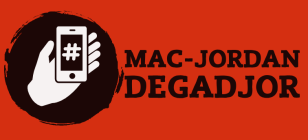-
Exploring Ghana’s Human Rights Landscape: Key Findings from the US State Department’s 2022 Country Reports. The United States Department of State recently released its 2022 Country Reports on Human Rights Practices, which provide an assessment of the human rights situation in countries around the world. The report for Ghana...
-
Internet Freedom is currently at stake as China is exporting their digital surveillance methods to African governments to spy on its citizens. The internet is growing less free around the world, and democracy itself is withering under its influence. The China-Africa (SinoAfrica) relationship is seeing new light in the...
-
ITU reveals the latest global ICT Development Index country ranking with the release of Measuring the Information Society 2017 Report The 9th edition of ITU’s flagship annual Measuring the Information Society Report has been released today. The Measuring the Information Society Report is widely recognized as the repository of the...
-
The 2011 Ghana Journalists Association (GJA) Best Journalist, Manasseh Azure Awuni takes us on a journey to reveal the challenges most rural children in Banda, a town in the Krachi Nchumuru District of the Volta Region face as they hope to acquire Education – a fundamental human right...
-
Reports from far and near indicates that, 89 countries including Ghana and a couple of other African countries has signed the final Acts of the International Telecommunications Regulations (ITRs) of the World Conference of International Telecommunications which took place in Dubai, UAE from December 3 – 14, 2012. The...
-
The World Conference on International Telecommunications (WCIT) – a 12-day conference that began on December 3 and run till December 14, 2012 in Dubai, UAE – brought together Internet policy makers (government regulators from 193 countries) and the broader Internet community to reviewing the International Telecommunication Regulations (ITRs), adopted...
-
Across his Administration, President Obama has taken bold steps advancing a digital environment that rewards innovation and empowers individuals the world over. These ideas, and the policies that support them, are cornerstones of America’s economy. But the benefits from this approach extend well beyond the United States; they are...
-
On Human Rights Day, we celebrate a simple but powerful declaration that “all human beings are born free and equal in dignity and rights.†Adopted 64 years ago today, the Universal Declaration of Human Rights stands as a monument to the courage of its founders and to freedoms longed...
-
The Internet has connected more than two billion people around the world. Some governments want to use a closed-door meeting in December to increase censorship and regulate the web. It is ours and it is free – a free and open world depends on a free and open web...







